Navigating Police Statements: What Not to Say
Did you know that the words you choose in a police statement can significantly impact the outcome of an investigation?
When it comes to making a police statement, it’s crucial to be cautious about what you say to protect your rights and navigate the situation with confidence. Inadvertently saying something incriminating can have serious consequences, potentially putting you at a disadvantage.
Key Takeaways:
- Choosing your words wisely is essential when reporting a crime to the police.
- Avoid saying anything that could be used against you.
- If you had to use self-defense, approach the police interview carefully, focusing on invoking your rights and seeking legal representation.
- Understand your rights and exercise them during a police interview.
- Hiring a lawyer who specializes in criminal defense can significantly impact the outcome of a police interview and subsequent legal proceedings.
Reporting a Crime: Choosing Your Words Wisely
When reporting a crime to the police, it’s crucial to carefully consider the words you use. Providing accurate and truthful information is important, but it’s equally essential to avoid saying anything that could be used against you. By following these guidelines, you can protect yourself during a police statement and ensure a fair and just outcome.
- Stay focused on the facts: Stick to what you know for sure when recounting the details of the crime. Avoid speculations or assumptions that could potentially lead to misunderstandings or misinterpretations.
- Do not admit guilt: While it’s important to cooperate with the police, it’s crucial to refrain from making any statements that imply your involvement or guilt. Be mindful of how your words could be perceived and seek legal advice before providing any potentially self-incriminating information.
- Invoke your rights if needed: If you feel uncomfortable during questioning or if the tone becomes accusatory, remember that you have the right to remain silent and the right to have an attorney present. Don’t hesitate to assert these rights if you believe they are necessary to protect yourself.
By choosing your words wisely and understanding your rights, you can navigate a police statement with confidence. Remember, seeking legal advice for police interviews is always a wise decision to protect your interests and ensure a fair process.
Here’s an example of what to avoid in a police statement:
| Statement to Avoid | Preferred Alternative |
|---|---|
| “I think I might have done something wrong.” | “I will provide the accurate details of the event in question.” |
| “I’m sorry, I didn’t mean to cause any trouble.” | “I will cooperate fully with the investigation.” |
| “I don’t know anything, but my friend told me they did it.” | “I will provide all the facts I know about the incident.” |
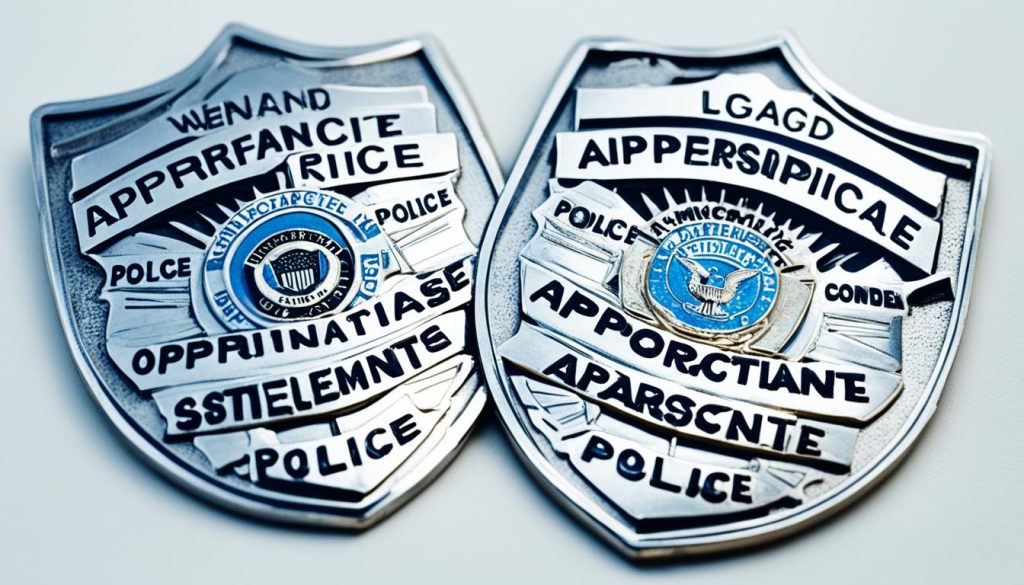
Acting in Self-Defense: Taking the Right Approach
If you find yourself in a situation where you had to use self-defense and need to report it to the police, it’s crucial to approach the interview with caution. Taking the right approach can help protect your rights and ensure that your side of the story is accurately represented.
Before making any statements, give yourself time to gather your thoughts and think through the events that led to the incident. This will help you provide a clear and concise account of what happened.
When describing the incident, it’s important to avoid certain phrases that could be misconstrued and potentially used against you. Steer clear of statements like “I killed him” or “I kept shooting him.” Instead, focus on providing a factual account of the events without sounding aggressive or vindictive.
During the interview, it’s essential to invoke your rights and ask to speak to your attorney before providing any further information. Your attorney will advise you on what to say and what to exclude from the police report. They will ensure that your rights are protected and that you do not inadvertently incriminate yourself.
Remember that the words you choose during a police interview can have a significant impact on the outcome of your case. It’s vital to be mindful and cautious about the language you use to describe the incident and to seek legal guidance to navigate the process effectively.
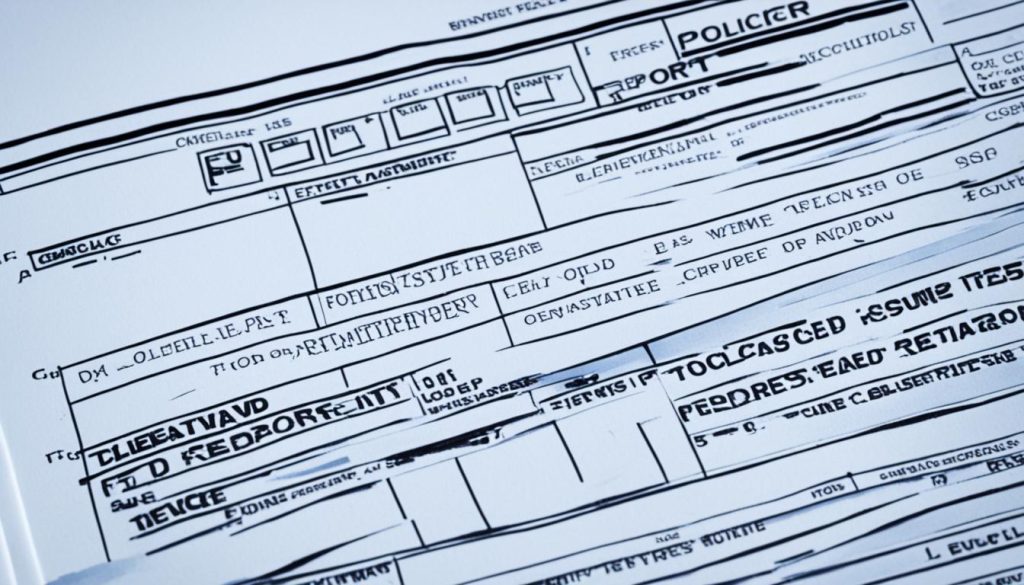
| Words to Exclude from a Police Report | Explanation |
|---|---|
| I killed him | Using this phrase could imply a lack of remorse or excessive force, which may lead to legal complications. |
| I kept shooting him | This statement suggests a continuous use of force beyond what is necessary for self-defense, potentially raising questions about the validity of your actions. |
| I wanted to cause harm | This statement can be interpreted as an admission of intent to cause harm, which can negatively impact your self-defense claim. |
| He deserved it | Expressing a personal judgment or vindictiveness may undermine your self-defense argument and portray you as an aggressor rather than a victim. |
| I was out for revenge | An admission of seeking revenge suggests premeditation, which can weaken your self-defense case. |
Know Your Rights: Understanding the Police Interview Process
As Canadians, it’s crucial to understand our rights during a police interview to protect ourselves and ensure a fair process. The police have a responsibility to explain these rights to you at the start of the interview, and it’s vital to know what they are.
During a police interview, you have the right to remain silent. This means that you don’t have to answer any questions that the police ask you. It’s important to exercise this right if you feel that answering certain questions may incriminate you or if you’re uncertain about the situation.
You also have the right to have an attorney present during the interview. If you are not comfortable speaking to the police without legal representation, it’s essential to invoke this right. Having a lawyer present can help ensure that your rights are protected and that you receive proper legal advice throughout the process.
When it comes to what you say during the interview, it’s crucial to be mindful of the information you provide. While you should answer basic questions about your name and address, it’s advisable to exercise your right to silence or respond with a simple “no comment” to other questions that may be potentially incriminating. Remember, anything you say during the interview can be used against you later on.
Understanding your rights empowers you to make informed decisions and protects your interests during a police interview. By having a grasp of your rights, you can confidently navigate the process and seek legal advice when necessary.
| Know Your Rights: Understanding the Police Interview Process |
|---|
|
The Importance of Legal Representation in a Police Interview
When facing a police interview, it is crucial to understand the importance of having legal representation by your side. The guidance and support of a skilled lawyer experienced in criminal defense can be invaluable in protecting your rights and ensuring a fair process.
A knowledgeable attorney will assist you in navigating the interview, providing you with vital legal advice for police interviews to help you make informed decisions. They can help you understand what to say, what not to say, and how to protect yourself in a police statement.
By hiring a lawyer who comprehends the intricacies of the legal system, you can significantly impact the outcome of your interview and any subsequent legal proceedings. They will advocate for your best interests, safeguarding your rights throughout the process and ensuring that you are treated fairly within the bounds of the law.
- The Role of Police in Community Safety & Unity - October 6, 2025
- Quebec Police Officer Salary Insights 2023 - July 13, 2025
- Canada Arrest Protocol: What Police Say Upon Arrest - June 12, 2025
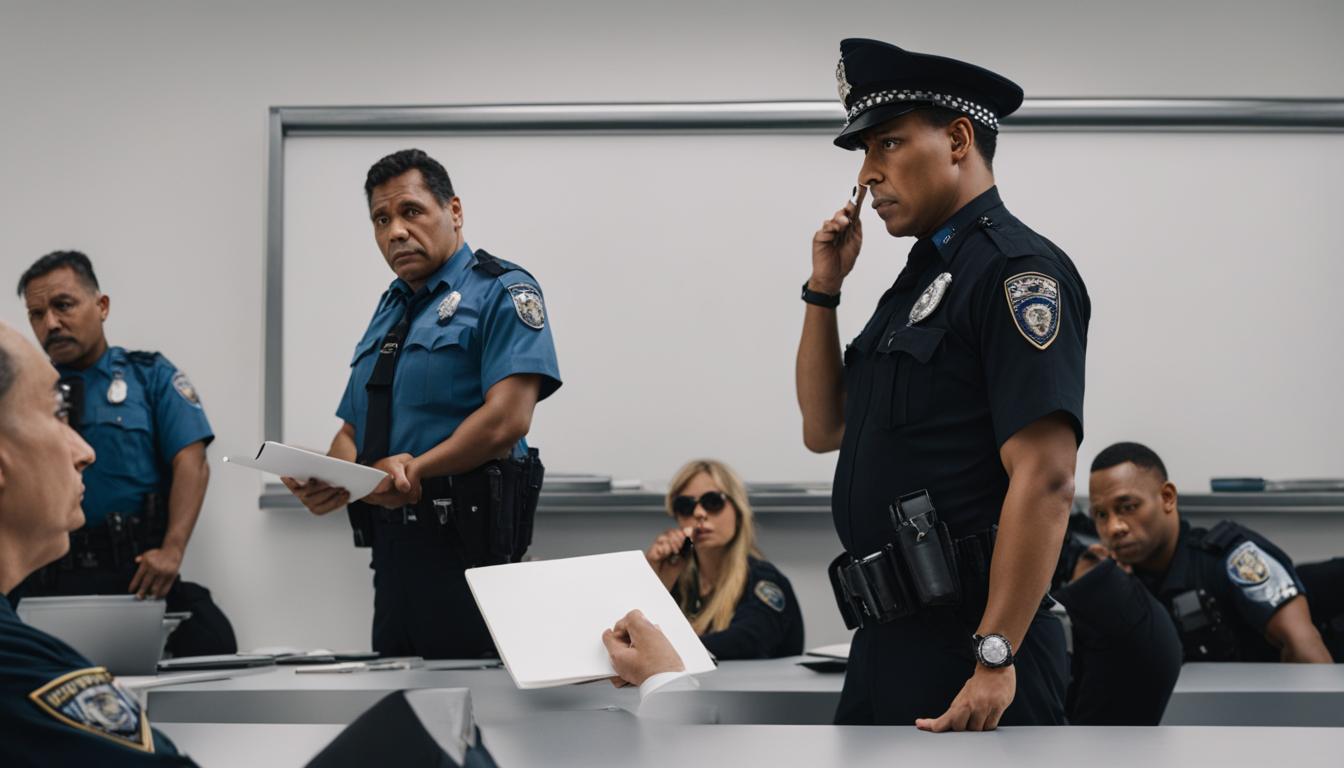
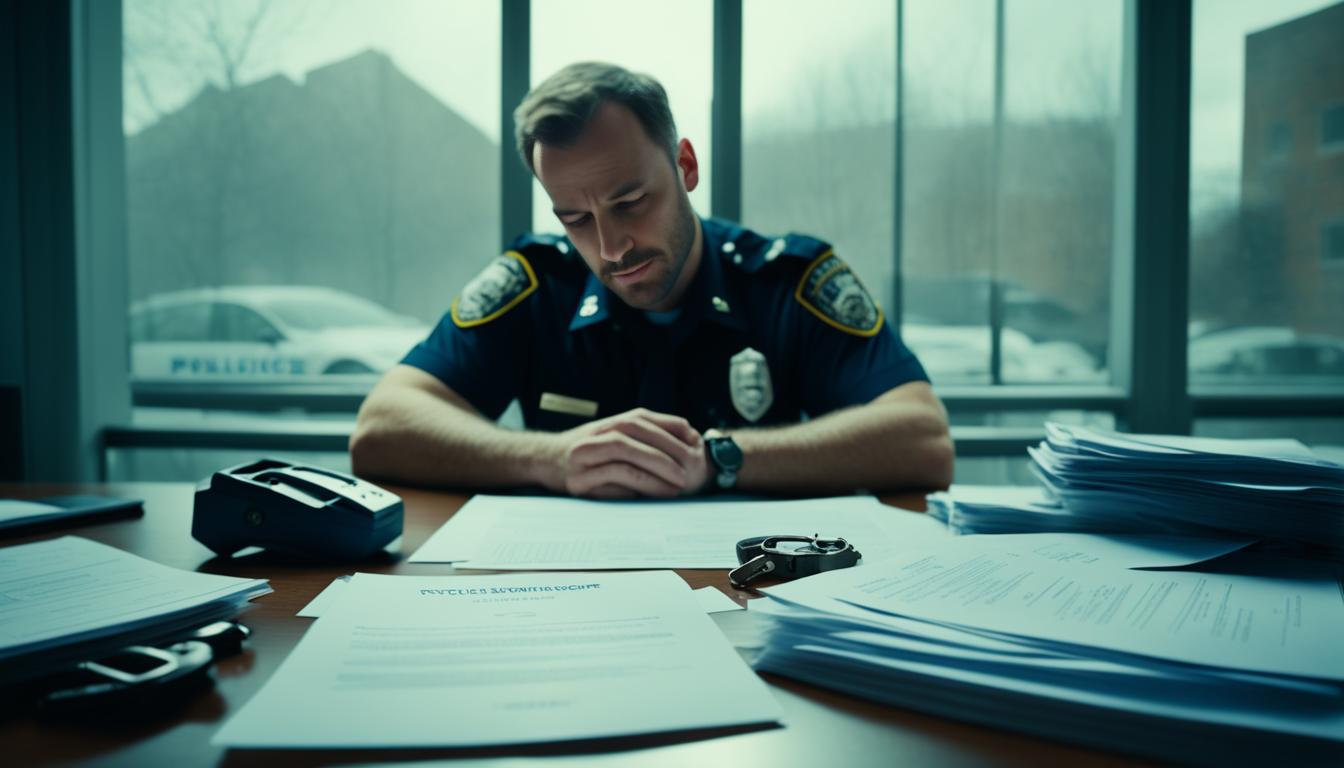
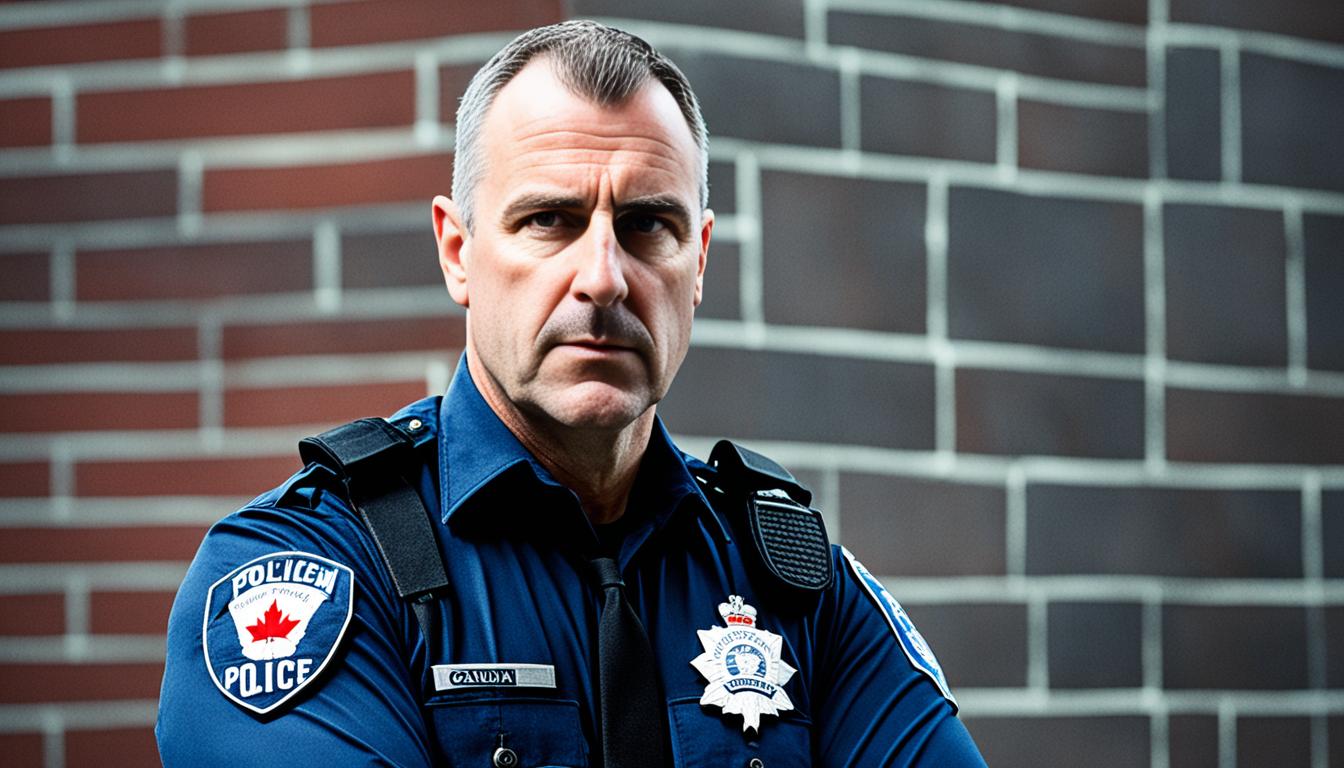
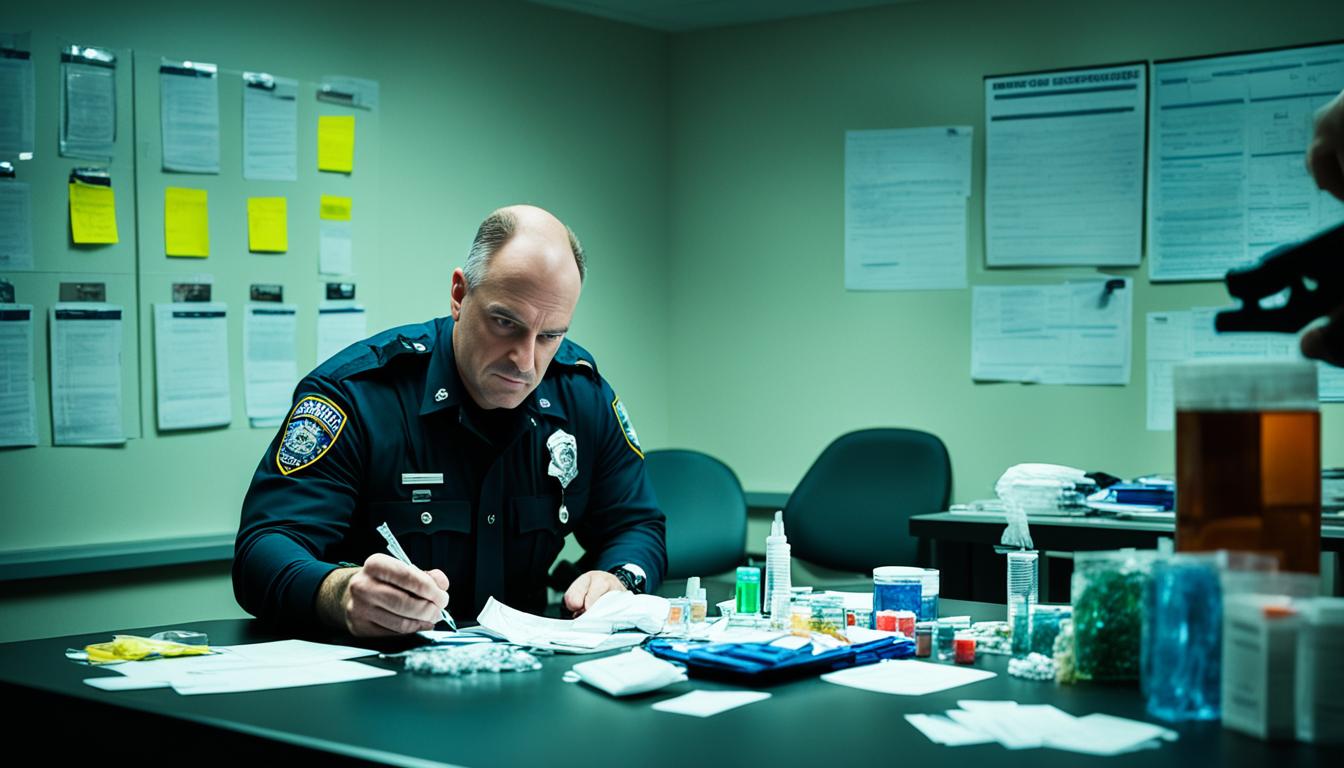

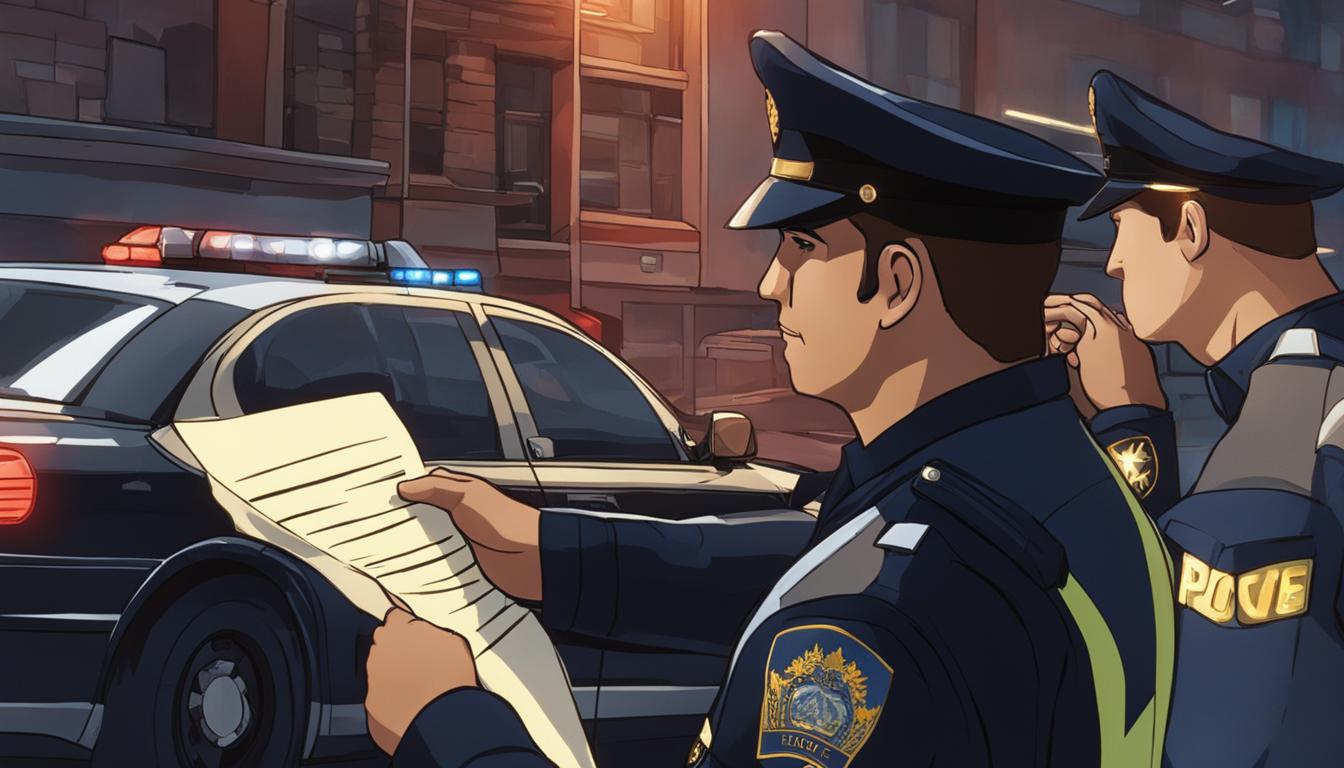
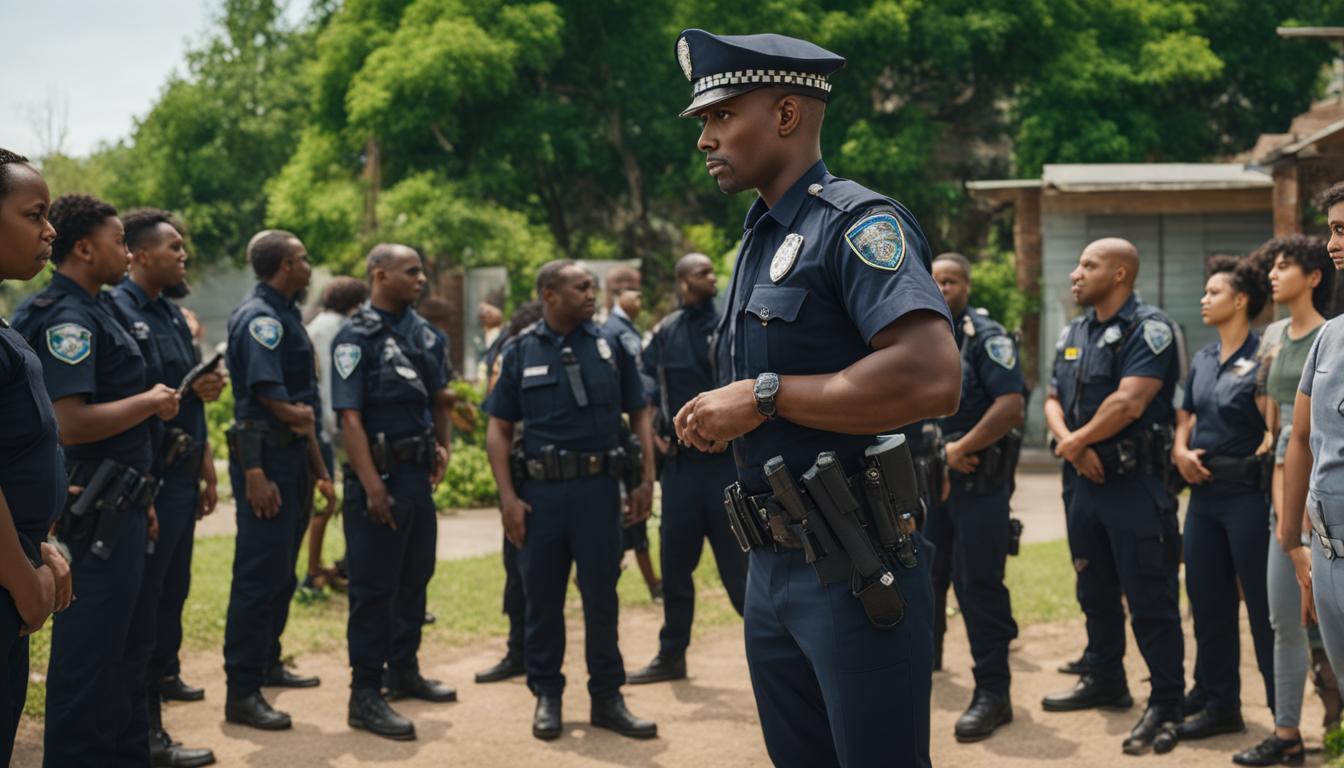
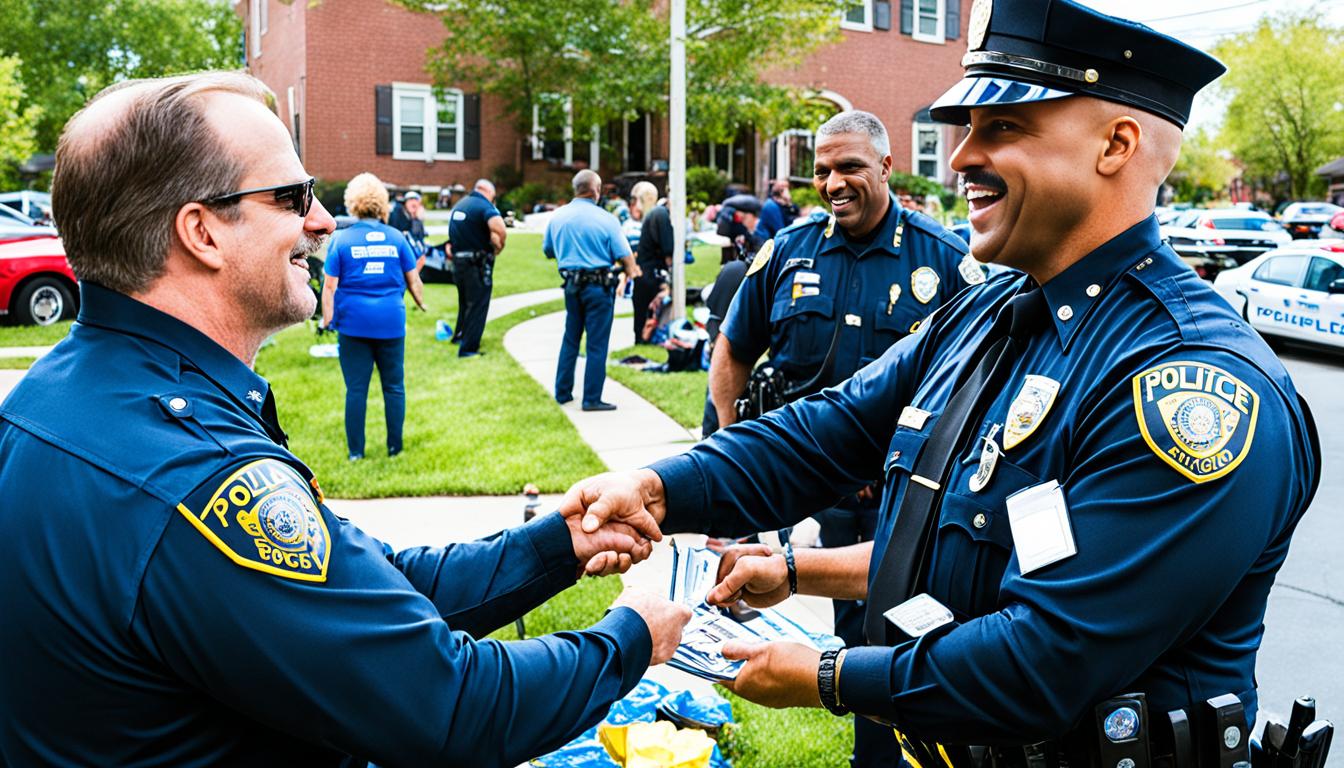












Post Comment